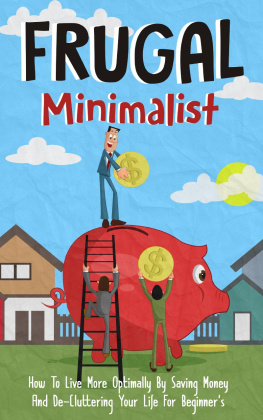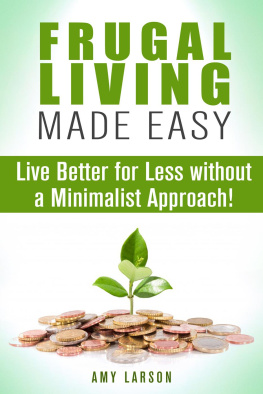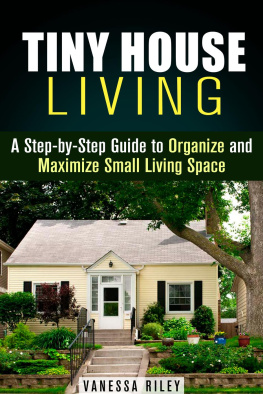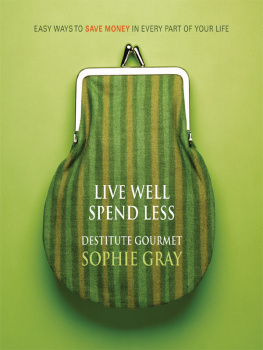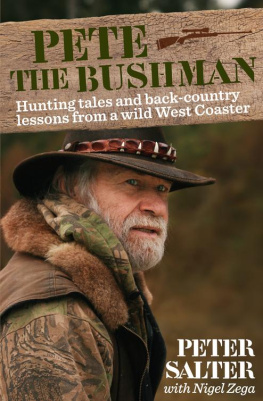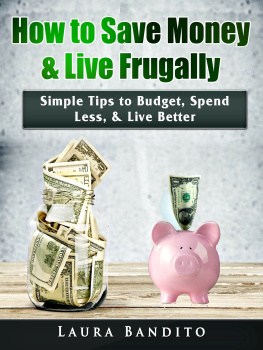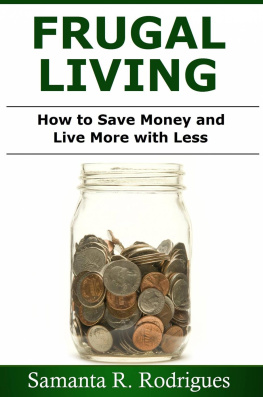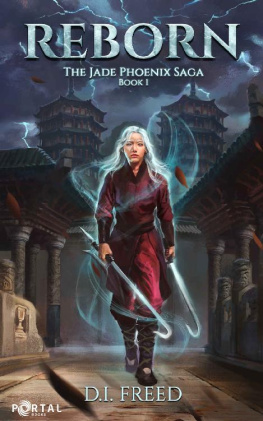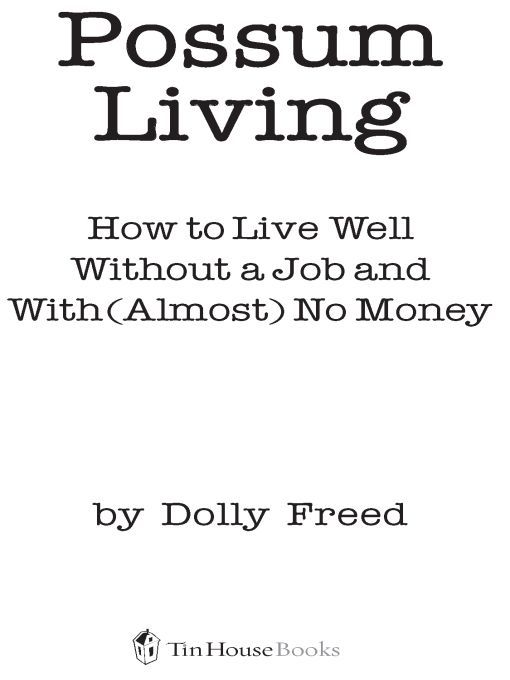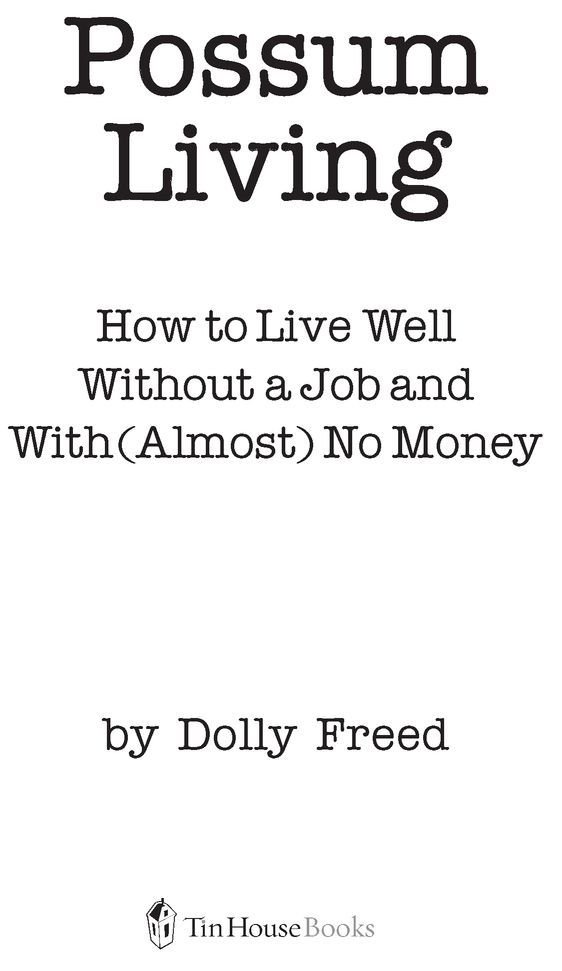Table of Contents
Foreword
Possum Living, by the pseudonymous Dolly Freed, was probably out of print by the time I stumbled across it in 1985, in the attic above the woodshed of a fixer-upper farmhouse Id bought in Washington County, New York. The previous owners had been city people whom the house, as well as a death in the family, had defeated, and theyd left behind a pile of books that suggested all too clearly theyd cherished the same back-to-basics fantasies that had brought me there. Many of these volumes dealt with such specific and practical matters as building decks and preserving vegetables; Possum Living was a manifesto. True, it offered hands-on advicerecipes for such foraged vegetables as yellow rocket, tips on raising and butchering rabbits, a diagram of a woodstove made from an old oil drumbut more notably it made a new version of the centuries-old argument for quitting the money economy in favor of a freer way of life. (Freed chose her pseudonym cleverly.) The books grocery-bag brown cover and its typewriter-style typeface, complete with ragged-right margins, suited the post-hippie, reduced-expectations gestalt evoked by its subtitle: How to Live Well Without a Job and With[the word Almost careted in, in faux handwriting] No Money.
My parents had also fetishizedand to a great extent achieveda life of rural simplicity, and when I was growing up, their generations equivalents of Possum Living still sat on their bookshelves: such Depression-conditioned survivalist tracts as Maurice Grenville Kainss 1935 Five Acres and Independence and Louise Richs 1942 We Took to the Woods. Freed published her book in 1978, the middle of the Carter era, with a small outfit called Universe Books; the following year, Bantam reprinted it as a mass-market paperback. They must have thought it would appeal to the outdoorsy, countercultural, basically nostalgic readers who, a few years back, had bought the Whole Earth Catalog, the Foxfire books, and Euell Gibbonss Stalking the Wild Asparagus. But Dolly Freed makes clear from the get-go that shes no high-minded advocate of the American pastoral: Why is it that people assume one must be a hippie, or live in some dreary wilderness, or be a folksy, hard-working, back-to-nature soybean-and-yogurt freak in order to largely by-pass the money economy? she writes in her introduction. My father and I have a house on a half-acre lot 40 miles north of Philadelphia, Pa. (hardly a pioneer homestead), maintain a middle-class faade, and live well without a job or a regular incomeand without working hard, either. Freed presents herself not as a utopian, but as a subversive survivor in a corrupted world, without ideological illusions. We live this way for a very simple reason: Its easier to learn to do without some of the things that money can buy than to earn the money to buy them.... So if youre thinking spiritual or sociological thoughts, dont waste your time with me. For her totem animal, Freed fixes on the ignoble possumthe stupidest of animals, but fat and sassy and able to survive almost anywhere, even in big cities. Rather than embrace such sentimental icons as the soaring eagle, or even the lone wolf, she identifies herself with a varmint.
Freed frames Possum Living as a call to change your lifeIts feasible, she writes in her peroration. Its easy. It can be done. It should be done. Do itbut her contempt for any form of idealism makes it hard to believe that she cares much what society at large does, as long as it leaves her alone. And despite her repeated claims that you can be lazy and survive on $700 a year (even in 1978 dollars), the possum life seems arduous enough: gardening, canning, fishing, hunting and raising animals for meat, foraging, cooking, gathering wood for the stovenot to mention making the stove. And fixing up the fixer-upper. Freed and her father bought their suburban house for $6,100, but the plumbing was ruined, the brick walls were crumbling, the cellar floor was mud, the wiring was faulty, and the windows were broken. Their do-it-yourself repairs, she reports, took less than a year, but it must have been a hell of a siege. All this primal work was surely less alienating than the factory labor her father resolved never to endure again, but it cant have been the Edenic existence that Shakespeares Gonzalo fantasizes about in The Tempest: No occupation; all men idle, all; / All things in common nature should produce / Without sweat or endeavor;... but nature should bring forth, / Of its own kind, all foison, all abundance, / To feed my innocent people.
Whatever Freed or her publishers thought Possum Living was, I see it as both a classic of American cantankerousnesslike Thoreaus Walden, Melvilles Moby-Dick, Frosts Build Soil, or Pounds ABC of Economicsand a cryptic autobiography. Freed was supposedly eighteen when she wrote this bookand I see no reason to doubt herand here and there she gives glimpses of a rancorous, downwardly mobile, borderline-violent milieu, something like the world of her contemporary Raymond Carver. A friend of ours, she notes in passing, in a chapter on everyday nitty-gritty law, lost his cool and threatened his wifes lawyer in open court. Freeds own parents were divorced, and her father, whom she calls the Old Fool, also had trouble with his wifes lawyer: So Daddy visited his house that night and caught his attention. How? Freed doesnt say, but her recommendations for dealing with an adversary include making anonymous threatening phone calls late at night, followed up by a visit to his house, during which you do something to let him know he has an enemy who has no intention of playing the game by his rulescutting his phone line, for instance, or throwing a brick through a window, or slashing his tires, or poisoning his dog. The gentle ecopuritan readers of Euell Gibbons and the Whole Earth Catalogassuming they ever got this far into Possum Livingmust have realized that Dolly and the Old Fool werent their sort of people.
Its not hard to get a fix on the Old Fool: Freed calls him a working stiff, who sometimes... made good money and felt like a big shot, and at other times was out of work and scared. He seems to have been an autodidactic crank. I remember when I was a little girl Daddy painted a picture of Diogenes sitting in his barrel tossing away his drinking cup. He wrote Are you a Diogian? as a caption and hung it on the living room wall to inspire us. Mom wasnt inspired. But Dollys still in the process of forming a self. At one moment, shes a tough-talking right-wing libertarian: Americans of my social stratum dont put much stock in government and law. I dont think I know an adult man who doesnt own a gunjust in case. The next moment, shes the coy all-American girl: Then theres BOYS!but enough of that. Out of nowhere, she inserts a poem with the self-deprecating title Dollys Autumn Doggerel: Sun kisses cheek, breeze musses hair / Geese call to us from high in air.... One of the great pleasures of Possum Living is to see her trying on her personas, and putting a hopeful face on what must often have been a difficult existence.
Possum Living actually did change my life, though in a way Dolly Freed could never have intended. It directly inspired parts of my first novel, Jernigan, which gave me my career as a fiction writer and, consequently, as a teacher. Like Dolly and the Old Fool, my protagonists girlfriend is a suburban survivalist who raises rabbits in her basement; the .22 pistol she uses to kill them becomes a crucial prop in the story. If I hadnt happened on


